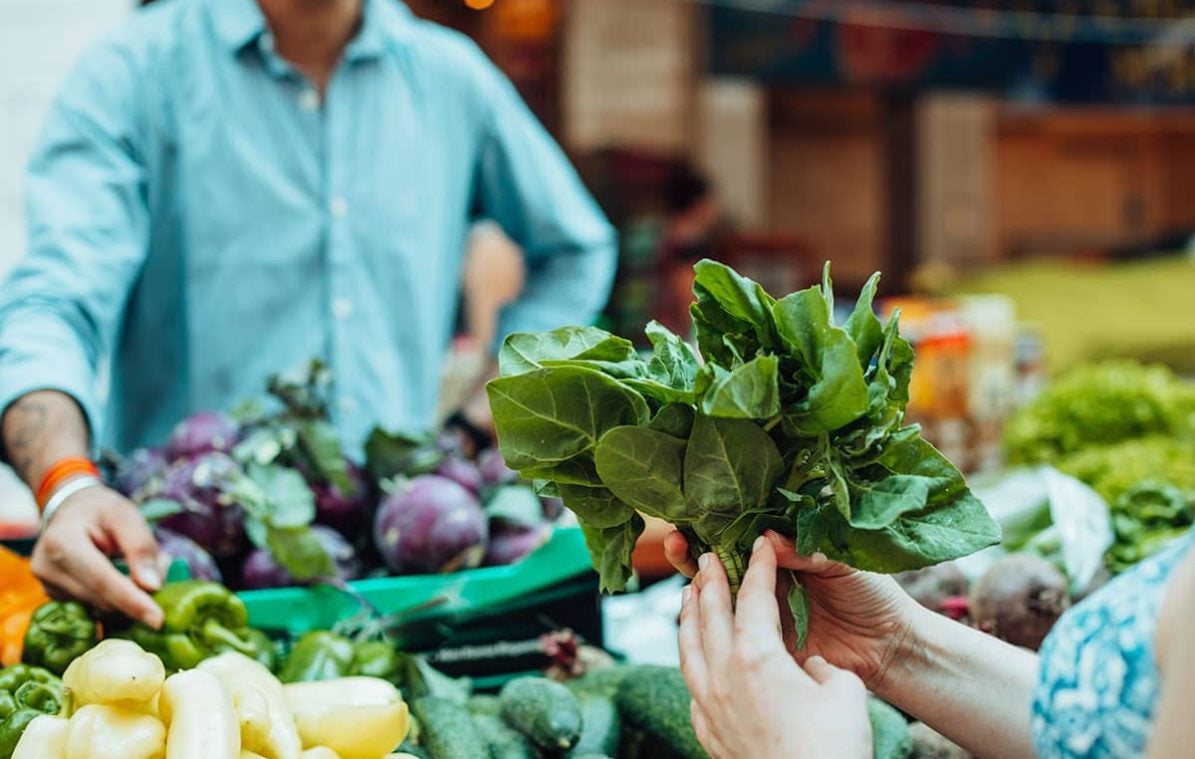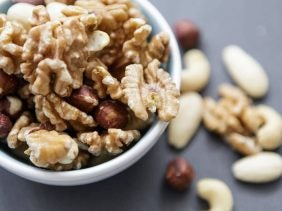Beat the Bloat by Eating These Foods
 Oksana Shufrych
Oksana Shufrych
You get up and pick your favorite jeans for the day; they look good and they’re also super comfortable. By the afternoon it’s a different story – your belly is bloated and you wish you could swap out those jeans for your sweatpants. Sound familiar?
Gas collecting in the digestive tract is quite normal. A bloated belly, on the other hand, can be very unpleasant. As long as the cause isn’t a disease or an allergy, a bloated belly doesn’t constitute a health concern. Still, you’d probably rather not experience bloating, right? Science tells us our eating habits are the main cause of gases accumulating in the digestive tract. The good news? You can actively influence this. A diary or app can help you track which foods increase bloating, so you can make sure you avoid them. You should also take your time when eating so you don’t swallow too much air, and remember to chew your food properly.
Some foods tend to make you more flatulent than others and you should avoid or reduce these, for example cabbages such as savoy or white cabbage or legumes such as beans and chickpeas. Coffee is another key culprit. There are foods that can help you beat the bloat, however. Some of our favorites:
#1 Ginger
Ginger root is a popular home remedy for all kinds of diseases and ailments throughout the world. Its effect on the gastrointestinal tract has not yet been sufficiently researched, but its anti-inflammatory and antioxidant effects have been scientifically proven. Ginger is also a helpful solution for nausea. It’s pretty clear that it makes sense including this root in your diet. For digestive problems and bloating, dried ginger is considered particularly effective. You can also add it into meals and use recipes featuring ginger to inspire you, or brew a classic ginger tea.
Unlike with lemon water, make sure the water is as hot as possible. This allows the ginger to maximize its effect and also its taste. You can chop it finely, grate it or our little insider tip is to crush it through a garlic press. This makes the tea even more intense.
#2 Fennel
Just like anise, this plant has a reputation for being beneficial for the stomach and intestines. This reputation is well-founded as a study reveals. Adding it to your meals can help calm your stomach and get rid of bloating. Gently prepare fennel bulbs in a steamer, sprinkle with a little lemon and parmesan and serve as a side dish. You can add it to your oven roast vegetables or try our cauliflower salad with fennel. You can also make use of fennel leaves as they are perfect as seasoning. If you don’t feel like cooking, you can simply snack on raw fennel. Fennel can also be used in tea, powder or capsule form, however studies are not yet clear on which form is most effective. Experiment to see what works for you and ask for advice from the pharmacy if you’re unsure.
#3 Herbs and Spices
Mint, dill, parsley, basil or savory. There’s such a wide variety of herbs, you can simply choose what goes best with your meals. Not only do herbs add flavor to your food, according to a study they can also act as a remedy for bloating. This fresh tabbouleh salad is an easy way to use lots of herbs in one healthy meal. Taking a teaspoon of cumin and caraway before and after a meal can also relieve bloating.
#4 Roast Chicken
Roast chicken is recommended because it is usually easy to digest, making it perfect as a light lunch or dinner. For a full meal, you can add some leafy greens, avocados and other ingredients that are good for you to make up an on-trend bowl. You’ll feel full, enjoy a large serving of protein, and you won’t have to sit back down at your desk with a bloated belly.
#5 Low Fat Soups and Stews
There’s no question that raw vegetables are wholesome, however due to their slow digestion in the intestines, they can quickly become the main reason for a bloated belly. Vegetables become easier to digest when cooked, so what could be better than a warming soup or a light stew? There are countless options for you to try.
#6 Water
…or unsweetened tea. A warm mug of water roughly 30 minutes before breakfast can be helpful for a bloated belly. In general, scientists suggest you should stay well hydrated so that your digestion doesn’t slow and lead to bloating. Be careful though, drinking while eating, on the other hand, can result in bloating.
Interestingly, whether you add lemon is purely a matter of taste.
#7 Vitamin D
… is not a food, you’re right. Studies suggest, however, that vitamin D can alleviate the symptoms of irritable bowel syndrome in people with deficiencies. The same goes for bloating. Walks in the sun and our Daily Vitamins can help you meet your daily needs.
More interesting articles from foodspring:
Sources for this article
We at foodspring use only high-quality sources, including peer-reviewed studies, to support the facts within our articles. Read our editorial policy to learn more about how we fact-check and keep our content accurate, reliable, and trustworthy.
































